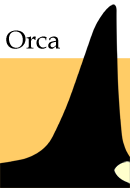INTRODUCTION
Overview
Download and Install
Quick Start
Documentation
Publications
NONFRAMEWORK CODE
Driver Interfaces
Drivers
Libraries
Utilities
FRAMEWORK CODE
Interfaces
Components
Libraries
Utilities
Full Software Listings
DEVELOPER
Tutorials
Examples
Dev Guide
Dashboard
PEOPLE
Contributors
Users
Project
Download
Mailing lists
Automated Testing with CDash
- Note:
- Reviewed for release 2.11.0
CDash is a software quality assurance system which can easily be integrated into CMake. The general goal is to make software more reliable by simplifying automated code (re)compilation and testing. Running CDash clients at different sites helps catch bugs caused by cross-platform and cross-hardware issues.
General things to note:
- It's best to do out-of-source build, i.e. all object/generated files are in one 'binary' directory. The reason is that it makes it simple for CTest to do a clean build every time by simply deleting all files in the build (or 'binary') directory.
- All scripts listed on this page can be found in the
[ORCA-SRC]/scripts/dart/ directory, so you can simply copy and edit them. - Orca depends on Gearbox and Hydro to be built and installed previously. We only give instructions for Orca except for the continuous case (see below).
CDash Server
The CDash server for Orca is up and running. Users can sign themselves up by clicking on the ''login'' link on top of the page. One useful feature is to send out emails to responsible developers when a build contained errors. After you login, press 'Edit Subscription' and add your sourceforge login name. From now on, if you check something in that doesn't compile, you'll get blamed by email.
CDash Client
The suggested directory structure on the client side is shown below. It is assumed in all the scripts which are included in the distribution. The contents of orca-exp and orca-nightly is similar to orca-cont. The *.cmake and *.sh scripts are copies of files from orca/scripts/dart (use copies so you can modify them to suit local conditions).
ctests/
orca/
orca-exp/
build-orca/
orca/
orca-nightly/
build-orca/
orca/
orca-nightly-linux-gcc42.cmake
orca-nightly.sh
orca-and-friends/
gearbox
build-gearbox
hydro
build-hydro
orca
build-orca
myempty
build-empty
- Experimental Build
That's the simplest test you can run and you do things manually:
- Reproduce the file structure shown above. Orca source tree is checked out from SVN
- Create an out-of-source build directory
- Execute ctest manually as shown below
$ cd ~/ctests/orca/orca-exp/build-orca $ cmake ../orca/. $ ctest -D Experimental -VV
If this worked you should see the results on the webpage after.
- Nightly Build
Reproduce the file structure shown above. Then add the shell scripts to your crontab with
$ crontab -e
so it looks something like this:
SHELL=/bin/bash 15 4 * * * /home/users/dart/ctests/orca/orca-nightly/orca-nightly.sh
- Continuous Build
Continuous testing is useful during active development. Whenever something changed in SVN, a build/test sequence is executed and results are submitted to the dashboard. Reproduce the file structure shown above. Execute the shell script once with nohup so that it continues running after you log off.
$ cd ~/ctests/orca/orca-and-friends-cont $ nohup ./orca-and-friends-cont.sh &
Orca depends on Gearbox and Hydro as mentioned earlier. The orca-and-friends.sh script shows an example of how you can realise the entire sequence Gearbox -> Hydro -> Orca -> Satellite_projects.

 1.4.5
1.4.5